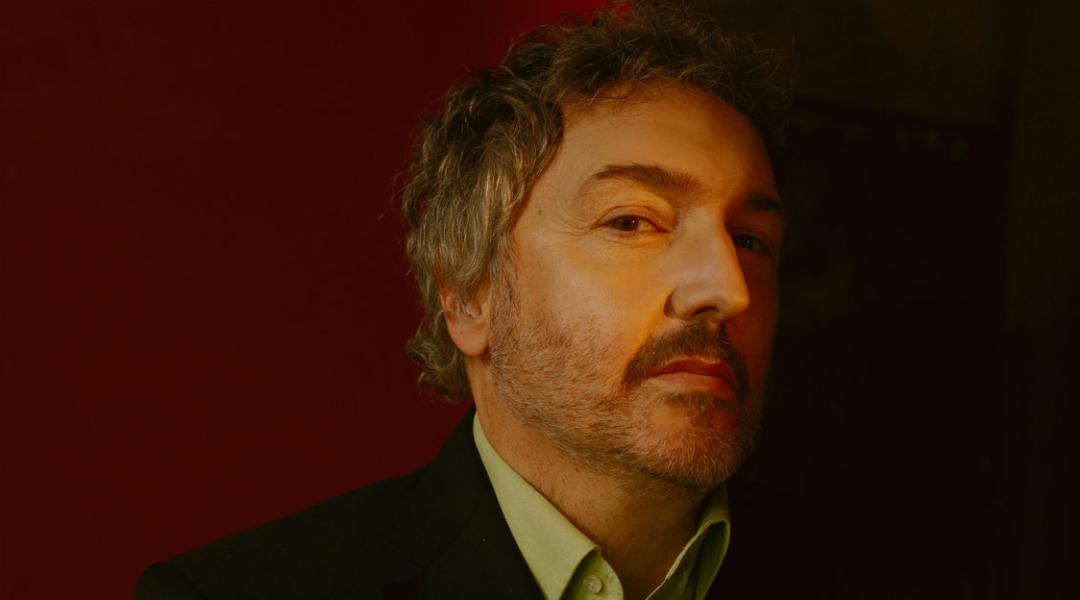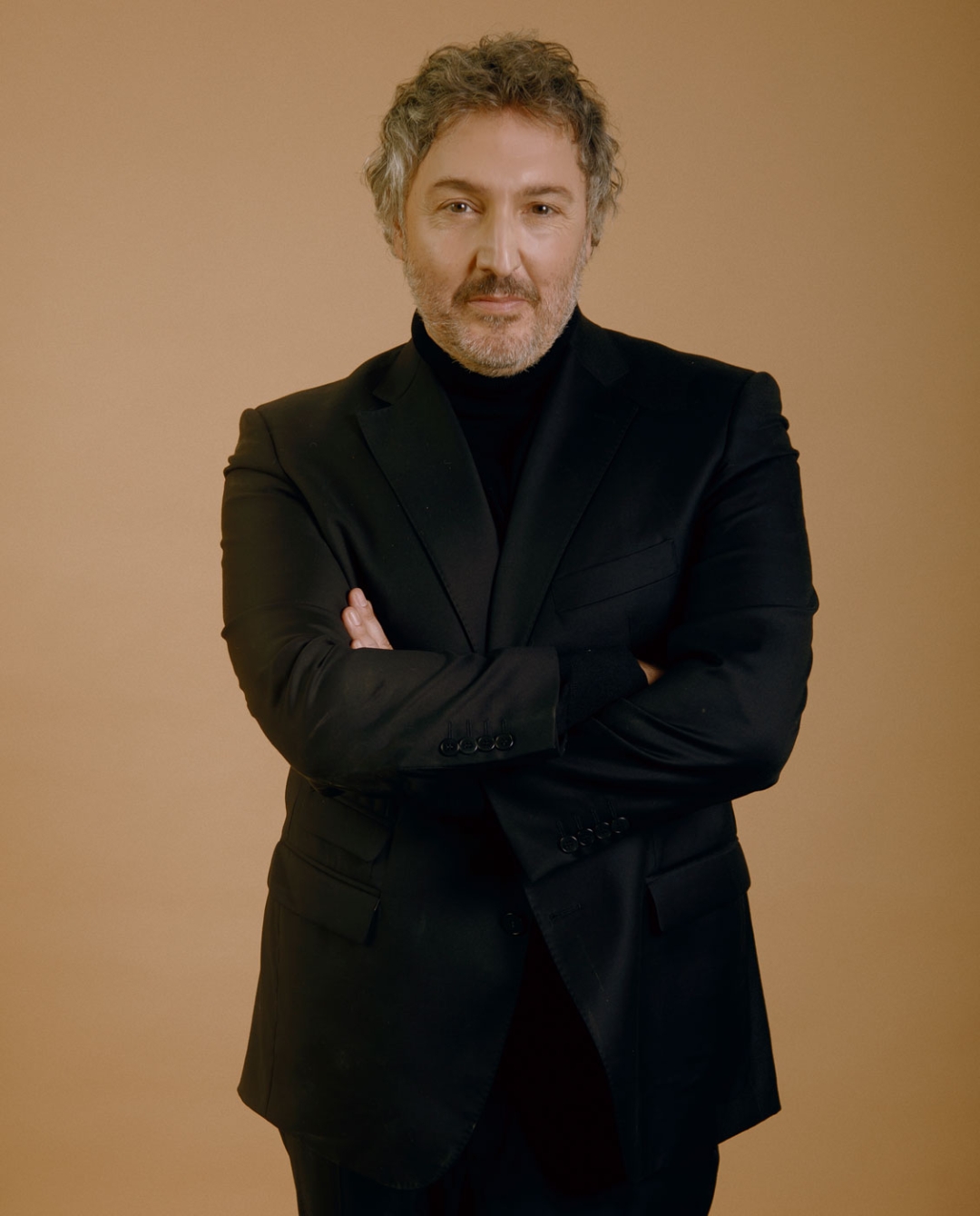Carlos Zanón
Songs like novels

Carlos Zanón is a novelist, journalist, columnist, poet, and commissioner of the Barcelona Negra literary festival. Writing is his life, which changes to the rhythm of those songs that are like novels. In Love Song, his latest work, he precisely explores the three-way friendship between characters emotionally and professionally electrified by music.
A few years ago, he accepted the challenge of bringing the character of Pepe Carvalho back to life, and he did so successfully. Problemas de identidad (2019) gave Carlos Zanón (Barcelona, 1966) the chance to make Vázquez Montalbán’s creation his own “without losing him or creating a mere imitation”. For his latest novel, Love Song, Zanón has immersed himself in rock music, a world he knows inside out and that was already present in works like Taxi (2017). Next year, he will publish the comic version of Taxi, illustrated by Pep Brocal, and he will compile around one hundred articles in a single book, but he confesses he’s already immersed in writing new fiction, “racking my brains, trying not to write about myself.”
With Love Song, you move away from crime novel, the genre where your talent has received the most recognition. Was this something you needed to do creatively?
The goal was to test myself, to try to find a different kind of reader, to see where I could go with it, and to find new things that I knew could work to not repeat myself. That was the general idea, and it’s been the book that I’ve struggled with the most. My aim was for it to be a kind of end of adolescence, that moment when you have to face who you are. In terms of its reception by my readers, I haven’t been abandoned by those who already followed me as a crime author because the tone and storytelling are not that different from my previous works.
Would you say that friendship is the main theme of the novel?
Friendship from several perspectives is one of the themes —the other would be illness—. For example, that unwavering loyalty from when we were kids, when music was the backbone of everything, and you were part of a secret society without saying so. That friendship which is a bit like that of Jagger and Richards, a fascination that makes one want to live up to the other until they blur the boundaries of themselves. In mediaeval times, knights could sell their allegiance, but not their loyalty. Being faithful and being loyal may seem like the same concept, but they are different things; loyalty runs much deeper.
What’s your relationship with your characters like? Do you struggle to say goodbye to them?
Characters are always oneself, at least that’s the way I work. For them to be realistic, you need to ask yourself what you’d do in their situation. Some of them are within you because they are you under different circumstances. They’re your ghosts. A novel is a haunted house full of ghosts. They help you try to understand yourself, who you are, and what your purpose is.
“A novel is a haunted house full of ghosts. They help you try to understand yourself, who you are, and what your purpose is”
Years ago, you were part of a band and you’ve also written about music. Did you fancy analysing music through fiction?
Yes, I wanted to ask myself where songs come from, to get closer to those beings that seem like us but aren’t really, because they’re able to create songs that change our lives. In Love Song, I wanted to explain why when you’re a composer you try to bring beauty into the world. And the gratitude we have towards musicians is different to that of other artists. Even though years go by, if a song touched you, you’ll always be grateful because it has given you something that you can’t give back.
A song has one main advantage over a book or a film. It only needs three minutes of your time to change your life.
Music is somewhat mad, it comes from unexpected situations, and transforms us in different ways, it can make us joyful or melancholic. You listen to certain songs and discover what you need to change your life. Pop music is extremely powerful, but it’s not made by exceptionally gifted people, they’re people that prove to you that you too can tell your story and sing about it. Then there’s fervour… When you listened to songs in another language and didn’t know what they were saying, but because of their fervour you knew that it was important, and you had to pay attention.

Music is one of Carlos Zanón’s passions and this is reflected in ‘Love Song’. © Felipe Huertas
You’ve written for Loquillo, Pájaro, Brighton 64... Is there anyone you’d like to write lyrics for or collaborate with?
I’d love to work with Nacho Vegas, but he writes exceptionally well… Look, I’d love to write lyrics for Los Enemigos with Josele Santiago, for example. That would make me really happy.
Literature is music, but when can we say that music is literature?
I don’t like music that approaches literature too respectfully. I love it when singers stumble upon literature, when they’re not looking for it. For example, Morir o matar, by Nacho Vegas, seems like an outrageous song to me, it’s like a novel. He tells the story in an approachable way, as if you were having a drink with him at a bar. When composers use words that move away from popular culture, the song does as well. I believe that music is literature when it gives you a peek behind the veil that’s in front of you. Camarón has a song that says: “When you’re born, God condemns you to death,” well, that’s literature.
“It took me 20 years to get a novel published. When the first came out, I had three more in a drawer”
Did you struggle starting out as an author? Do other factors apart from talent come into play?
I started out publishing poetry, but from the beginning I knew I wanted to publish prose. It took me 20 years to get a novel published. When the first came out, I had three more in a drawer. I think that at that time my style, my poetic gaze, didn’t fit in. Until at a certain point it did. Finding a story that wasn’t close to me helped me, and I was also lucky to ride the crime novel wave. Sometimes things happen that have to do with luck. As an author, I’ve worked my way up from the bottom: my parents didn’t know any editors, or booksellers, or book critics, and I knew nobody in the publishing industry, I knew mechanics and supermarket cashiers. So, my chances of making it were slim.
What do you find fascinating about crime novels?
They allow me to let go of my self-absorption. In crime novels, you need to explain, have good pace, and create tension, regardless of how you adorn it. I also love the fact that there are great writers within the genre who aren’t prima donnas, who consider themselves more craftspeople than artists.
And what does your work as a journalist and columnist bring to your role as a novelist?
It’s like going to the gym. It helps you to keep up to date with current events, to look for themes, and to explain things using a certain number of words. It allows you to do this and also make ends meet.


